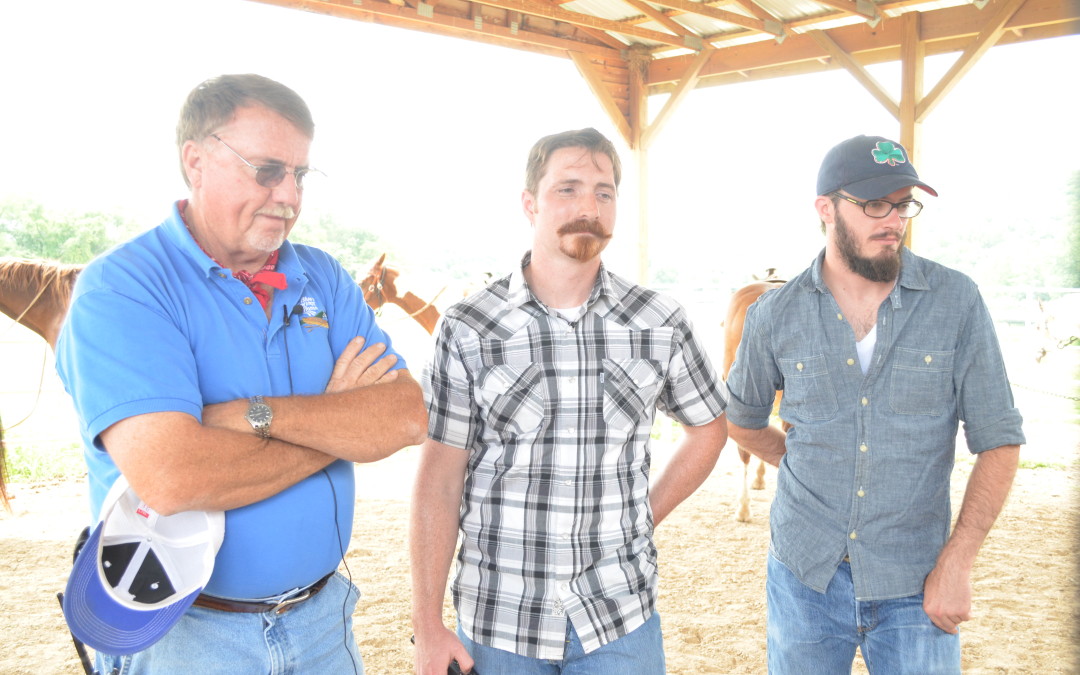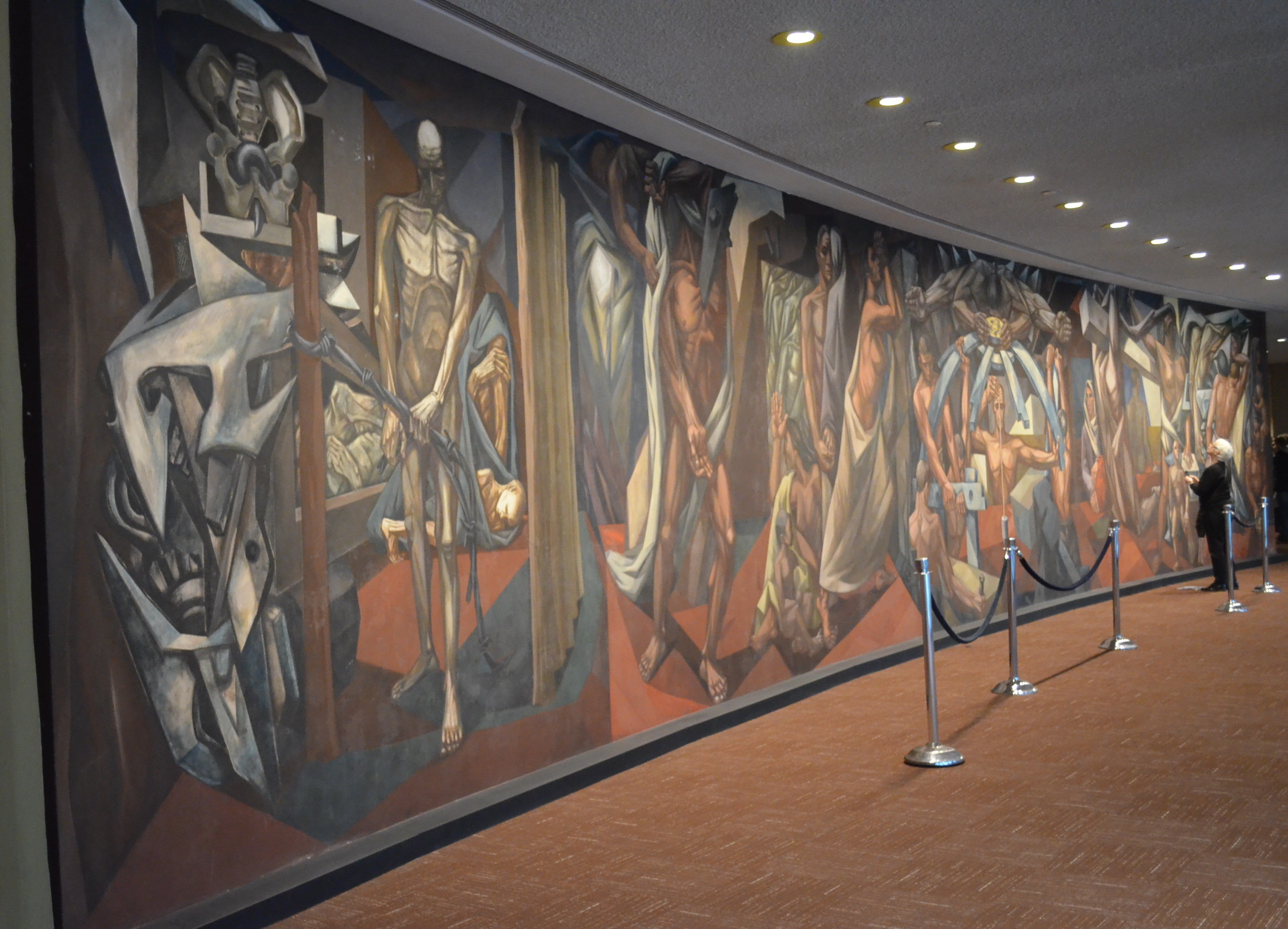
by Ian Rygiel | Nov 14, 2014 | Ian's Blog
My apologies to both of our regular readers for missing last week’s post. In the interest of full disclosure, I did have an entry ready to go, but I would have immediately regretted posting it; I was in my cups, my Irish was up, and I was feeling frustrated with my current profession (not the one where I get to ride a motorcycle and talk to amazing people, that’s the best job in the world). The language of my original post was a bit too raw, but I’d still like to touch upon the same theme. Labor. It’s a noun, it’s a verb, it’s an adjective, and it’s the unsung, under-appreciated engine that drives our economy. So where’s the love for those who literally and figuratively put their backs into their work? The sad reality is productivity and corporate profits are at an all time high in this country, but workers’ wages continue to stagnate. The laborers reward for their hard work? More work. Longer hours. Larger demands. A smaller share. When I think of the hard workers we met, the first person to come to mind is a rancher named J.R.. He very much played the part with his wide-stance, direct speech, and exceptional mustache. J.R. was an intimidating presence, but he said some of the most insightful things I heard all trip. Through sweat and sheer force of will, J.R. made the Blue Springs Ranch in Missouri what it is today. To any outside visitor, myself included, the Ranch seems idyllic, and wildly successful, but it takes an incredible amount of work for everything to appear so...

by Ian Rygiel | May 29, 2014 | Ian's Blog
I’ve always enjoyed sitting in dive bars. I’m not talking about the hipster-chic types, where yuppies can safely slum it, but the taverns, bars and pubs found in working towns across the country. The places with dark wood, stained even darker from years of cigarette smoke and contact from countless bodies. There’s a level of comfort I’ve found in these sacred places. No matter what town or state they’re in, they feel familiar. Populated by workers, regulars, and professional drinkers, these bars are the new campfire. Looking around at the introspective gazes of the patrons, it’s easy to find the ones who have lived their lives, experienced the world, and basked in success and failure alike. They’ve got story after story, and while they might seem as world weary as everyone else, their eyes are alive. The most common of these stories is the “if only…” tale. The lottery ticket that was almost a big win… The sport that could have led to a professional contract… The business that would have made millions… …if only… And if there is one thing I’ve learned from sitting in these bars, it’s there is no shame in the “if only…” story. The shame comes from only have one. After listening to these modern day bards wax poetic, it’s not long before I’m feeling restless again. Picking myself up, I’m ready to leave the stale air behind, venture out into the world, and continue writing my own story. This way, if the day ever comes when I’ve settled into just one bar in just one town, I’ll have a few of my own...

by Ian Rygiel | Apr 18, 2014 | Ian's Blog
As with my last blog post, I’d like to start by referencing a previously written article, if only to start the conversation “The Dark Side of Getting Into College,” written by Lauren Stiller Reikleen, takes a look at the colossal amount of pressure being placed on children to get into college. It should come to no one’s surprise that all of the practices, tutoring sessions, and extra-curricular activities are leading to highly stressed, anxious, and sleep-deprived kids. This is not a problem that ends with a student’s acceptance into college either. I would argue this upbringing is one of the biggest underlying factors the generation of 20-30-somethings, most affected by the Great Recession, are now coping with. When a large portion of someone’s life and identity is wrapped up in the concept of higher education, the result is two-fold: Certainly, it cultivates a generation of intellectually-minded individuals who appreciate art, culture and music, but it also breeds a generation that will find it harder to cope when they are unable to put their education to work — say, when an economy collapses in on itself due to greed and predatory lending practices. What we have now is a new class of citizen. This class has been shaped and molded to become the new bourgeois, but has found limited employment opportunities within this social class, and instead, works in traditionally lower class, proletariat occupations. The result is the creation of the poorgeoisie. And the poorgeois are just as hard-working, motivated and intellectually minded as they ever were — but now, many of us are also more stressed and anxiety-ridden...

by Ian Rygiel | Mar 28, 2014 | Ian's Blog
As The Great Recession turns into The Slow Recovery, I have noticed an increasing number of articles written about the psychological effects of long-term unemployment (if you’re still reading after that opener, I applaud your fortitude). While I always find the statistics sobering, as someone who has had their life deeply affected by the recession, I often find myself disagreeing with how those stats are applied to the inner thoughts of the working class. This article in particular (http://www.bbc.com/news/magazine-26669971 ), written by Debbie Siegelbaum, deals with the alarming fact that companies have begun discriminating against the long-termed unemployed. I’ve lived through this myself, and I can attest that there is no hurry to grant interviews to folks who have been out of work for months at a time. As Siegelbaum points out, in 1950, the average length of unemployment was just 11.8 weeks; in 2014 it is 37.1 weeks. My experience with this phenomenon occurred as my first real job as an educator in a public high school ended. When the recession hit, I was let go along with a sizable portion of my coworkers. Despite my teaching certification, which I received through an MA program, I found the prospects of getting an interview growing dim. After sending out countless job applications, and receiving only one interview in over a year, I began to settle for part-time positions; not limited to the field of education mind you. For a while I worked as a day laborer, scraping tile and hauling all manner of things from refuse to cement and eventually found a part-time gig loading trucks on an overnight...





